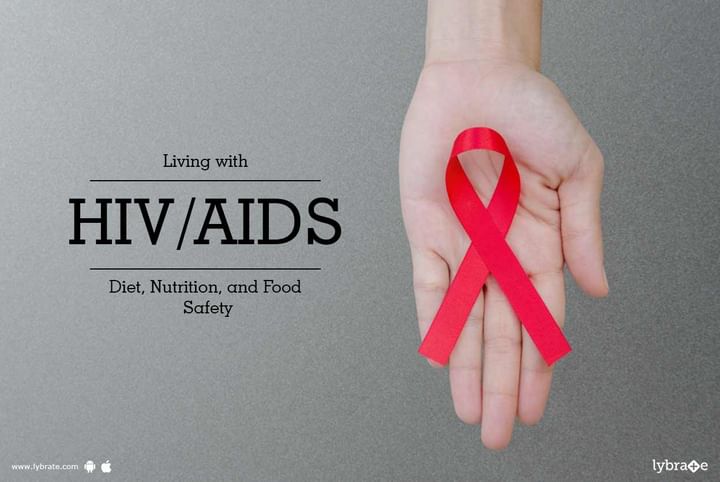Living with HIV/AIDS: Diet, Nutrition, and Food Safety
HIV infection and AIDS (commonly referred to as HIV/AIDS) are caused by the Human Immunodeficiency Virus (HIV). HIV is transmitted sexually and through exchange of body fluids, such as blood. The HIV attacks our defense system (immune system) giving opportunity to many illnesses to attack the body. These infections (called opportunistic infections) range from common cold and diarrhea to life-threatening illnesses including uncommon pneumonias and cancers. The type, range and intensity of opportunistic infections vary with the severity of the HIV infection and the extent to which our immunity is compromised.
AIDS is the last stage disorder of the HIV infection. Though there is no complete cure for the HIV-infection till date - despite thousands of scientists across the world working on it, spending countless hours of research involving billions of dollars - there has been tremendous progress in medicare improving the quality of life of the HIV-infected, in extending their life-span to almost normal levels and in preventing mother-child transmission.
The key factors in extending the life-span, and in keeping good immunity and good health are
-
balanced and nutritious diet
-
regular physical exercise
-
correct, consistent and lifelong use of the prescribed medicines
-
periodic medical checkups
-
staying psychologically positive and strong
-
good family support and
-
good lifestyle habits.
The last one involves maintaining good personal hygiene, avoiding smoking (active as well as passive), alcohol, recreational drugs, unhygienic and disease-prone environments and sedentary life style. Those who follow these will guidelines certainly have better prognoses.
Diet:
A nutritious diet is of utmost importance to the HIV-infected, as adequate nutrition contributes to the development of the immune system, prevents malnutrition and wasting, achieves and maintains optimal body weight and strength, enhances the body’s ability to fight opportunistic infections, helps delay the progression of HIV, improves the effectiveness of drug treatments, and improves the quality of life.
-
Ensure that the food contains adequate macronutrients, that is, carbohydrates, proteins and fat, otherwise the patient may end up with - protein-energy malnutrition, manifesting itself in the weight loss and wasting that is typical of AIDS patients.
-
As per WHO, an HIV-infected person has additional nutrient requirements: 10-15 percent additional energy intake and 50 to 100 percent increase in protein intake as compared to a non HIV-infected person.
-
Consuming micronutrients (especially Vitamins A, B6 and B12, iron and zinc) is important for building a strong immune system and fighting infections.
-
Try and maintain a daily diet containing rice/roti, vegetables, legumes, and fruits which provide you energy and micronutrients. Choose foods that are low in saturated fat, trans fat, and cholesterol.
-
Eat at least two servings of fish each week. Oily fish, which contain omega-3 fatty acids, are best. If you cannot eat fish, you can also get omega-3 fats from omega-3 eggs, walnuts, flax seeds.
-
Better avoid fast foods.
If you wish to discuss about any specific problem, you can consult the doctor and ask a free question.



+1.svg)
